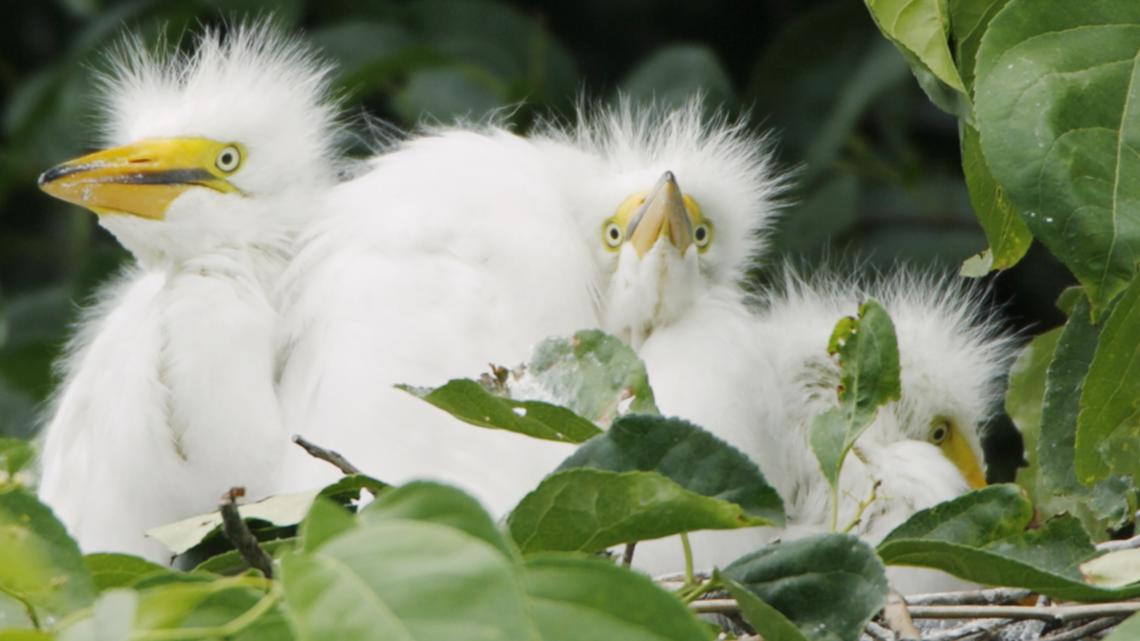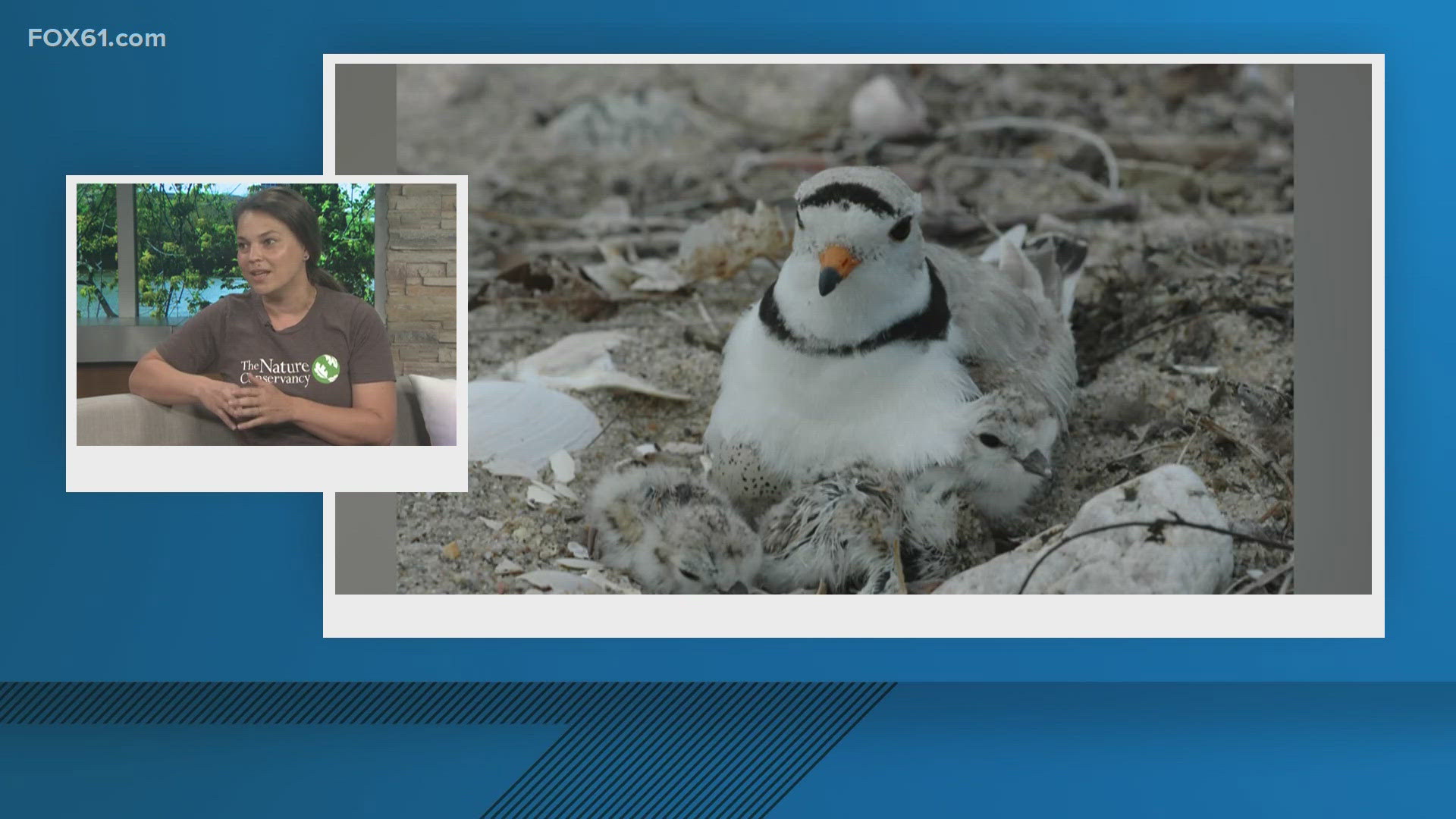HARTFORD, Conn. — The Connecticut Department of Energy and Environmental Protection reminded beachgoers and others recreating on the shoreline this summer to share the shore with nesting birds.
As public use of Connecticut’s beaches grows, DEEP said in a release on Tuesday that there are fewer locations for shorebirds such as piping plovers and least terns to protect, feed, rest and raise their young. Both species are identified by the Connecticut Endangered Species Act as needing conservation.
Climate change has caused more intense coastal storms and tidal flooding, adding to the challenges faced by bird species that depend on the shoreline, according to DEEP, which takes measures to protect nesting shorebirds and water birds. Residents can do the same by exercising caution and following posted rules when visiting the shoreline.
“Protecting wildlife and their habitat is one of DEEP’s most important responsibilities,” DEEP Commissioner Katie Dykes said in the release. “We coordinate closely with conservation organizations and work to educate the public about the importance of preserving these bird populations in Connecticut. It’s important to remember that when we visit the shoreline to recreate, we’re also visiting a crucial habitat for shorebirds.”


According to the release, the Dr. William A. Niering Preserve located within Harkness Memorial State Park in Waterford, Charles Island in Milford and Duck Island in Westbrook are all closed to the public temporarily to prevent disturbances to nesting birds.
All three sites have been designed by DEEP as Natural Area Preserves. The three sites provide nesting habitats for several state-listed birds such as piping plovers, least terns, snowy and great egrets, glossy ibis and little blue herons, according to DEEP, which added that Charles and Duck Islands are designated as Important Bird Areas by Audubon Connecticut.
Beach visitors and boaters along the state’s shoreline are also asked to respect the fencing and yellow signs warning of piping plover and least tern nesting sites. The DEEP release said that the piping plover is a small, sandy-colored shorebird about the size of a robin and is listed both in the state and federally as a threatened species.
The “small, gull-like least tern” nests in the same beach habitat as the piping plover and is also a state threatened species, according to DEEP. Both species nest in the preserve at Harkness, and the preserve is closed to minimize human disturbance to the birds during their sensitive nesting season.
Justin Davis, chief of the DEEP Bureau of Natural Resources, said the preserves at Charles and Duck Islands are annually closed during nesting season to protect the different bird species.
“Closing the islands and the Dr. William A. Niering Natural Area Preserve, as well as enlisting the public’s help and cooperation, are simple but effective ways to protect these birds,” Davis said, in the DEEP release.
On both islands, educational signs are posted, nesting colonies known as “rookeries” are fenced off and signs are posted that read “Do Not Enter – Bird Nesting Area,” the DEEP release said.
According to DEEP, when young birds are agitated by disturbances, they can easily fall from their nests. Once on the ground, the young birds die of starvation or predation, and if the disturbances continue, the adults may abandon the rookery altogether.
Common disturbances to rookeries include unleashed dogs, boat and kayak landings, people approaching fenced nesting areas, campouts and bonfires, DEEP said.
Plovers and terns need special production throughout their nesting season from April through August, according to DEEP, which said visitors can avoid disturbing nesting birds by obeying warning signs and staying away from fenced areas.
DEEP said that both piping plovers and least terns use a shallow depression in sand for a nest, and their sand-colored eggs and young are so well camouflaged that it doesn’t take much to step on them.
“When perceived predators approach, young piping plovers are likely to stand motionless while the adult tries to attract attention by pretending to have a broken wing or flying around the introducer. If you witness this behavior, DEEP advises you to move away from the area and toward the water’s edge at once,” the release said.
To protect nesting shorebirds and help them survive the challenges of living in beach habitat, one can walk close to the water on the lower portion of the beach, follow guidance on signs, respect fences, refrain from walking dogs during nesting season, keep your distance while photographing or birdwatching, remove trash and food scraps that attract animals that might eat the birds’ eggs, never feed animals or wildlife on or near the beach and do not attempt to “rescue” young birds that appear to be lost or too young to be solitary, according to DEEP.
In many cases, when immature birds are found alone, the adults have been scared away but remain nearby and will return to their young once the intruder leaves, DEEP said, adding that it is illegal to hold wildlife for rehabilitation without proper state or federal permits.
DEEP said any violations affecting wildlife can be reported to its 24-hour, toll-free hotline at 1-800-842-HELP (4357).
----
Dalton Zbierski is a digital content producer and writer at FOX61 News. He can be reached at dzbierski@FOX61.com.
----
Do you have a story idea or something on your mind you want to share? We want to hear from you! Email us at newstips@fox61.com.
----
HERE ARE MORE WAYS TO GET FOX61 NEWS
Download the FOX61 News APP
iTunes: Click here to download
Google Play: Click here to download
Stream Live on ROKU: Add the channel from the ROKU store or by searching FOX61.
Steam Live on FIRE TV: Search ‘FOX61’ and click ‘Get’ to download.

